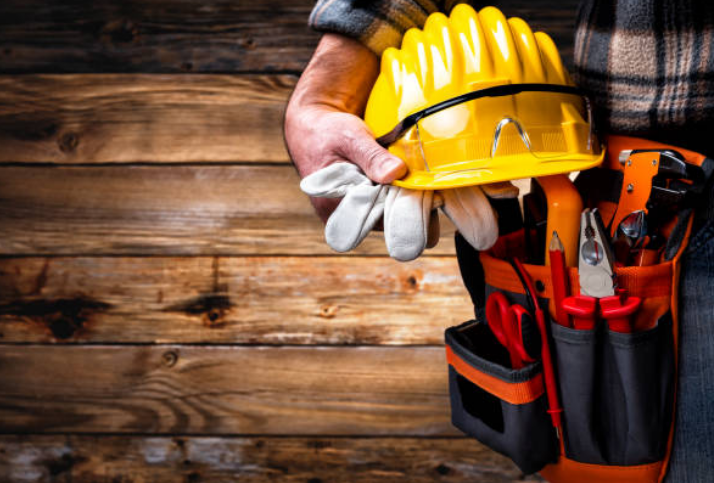Prepare for a Power Outage
by siteadmin

Severe weather, tree limbs falling on power lines, car accidents causing damage to utility poles, and even animal interaction with electrical equipment are common causes of outages. It’s essential that families prepare by developing a family emergency plan and by assembling a power outage survival kit.
When the lights flicker and your electricity goes out, take action immediately!
1. Turn off the main breaker
A sudden power outage can happen without warning. Lightning, winds, falling trees or a major storm can knock out the electricity you rely on for everything from cooking to watching TV. But you can take steps to prepare in advance and deal with the situation quickly if it happens.
The majority of power outages last only a few minutes. That’s by design, as specialized electrical equipment instantaneously opens and closes a breaker to clear temporary short circuits. But weather, accidents or problems with the electrical grid can cause an outage that lasts days, or even weeks.
If your power goes out, it’s important to take a deep breath and figure out the problem. Look outside to see if your neighbors still have lights on, and try resetting the main breaker switch in your electrical panel. You should also keep a flashlight and battery-operated radio handy. These items provide a safe source of light for your home, and can help you communicate with neighbors during a long-term outage.
You should also keep bottled water, canned food and non-perishables, as well as blankets, charged backup chargers for cell phones and medical supplies. And you should have a plan for how you’ll communicate during a power outage, either through text messages or a paper list of emergency contact numbers that you can use without electricity.
A quick check of your electrical box will reveal that the breaker is set to “on.” Flipping it to the “off” position will shut off your entire system. But if the problem is something more serious than that, it’s important to hire an electrician as soon as possible.
It’s also a good idea to test your main breaker disconnect at least once a year by shutting it off and then turning it back on. This will ensure that the breaker can safely and reliably send electricity to your home, even during a prolonged outage. It will also prevent the chance of an unexpectedly large surge that could damage your appliances and cause a fire. If you have small children or elderly family members living with you, it’s a good idea to teach them where the breaker is located so that they know what to do in an emergency.
2. Call the power company
Assemble an emergency kit that includes a flashlight, battery-operated radio, charged cell phone with the charger attached (or a backup), bottled water and non-perishable foods. Include a list of emergency contacts. You should also have a manual wheelchair available in case you or a family member becomes stranded during a long power outage and needs to move around. Keep these items in an easily accessible place so that you can quickly grab them if needed.
If you can, check your neighbors and the neighborhood to see if they are experiencing a power outage as well. If they do, the problem likely lies within your home, possibly a blown fuse or circuit breaker that has been turned off. Find your electrical box and check the breakers to see if any are in the off position; if they are, switch them on to reset the service line to your house.
During a power outage, be sure to unplug any appliances with electronic components such as televisions and computers. This will help prevent damage to your equipment during a surge when the power comes back on. Also, wait a few minutes before plugging in large appliances like refrigerators. This will reduce the demand on the electric supply.
Most power outages last a few minutes, but some can be much longer. This can be due to weather, accidents or severe damage to the electrical grid. Some outages can even occur over a wide area and can last days or weeks.
When this happens, you may need to go to a neighbor’s house or find a shelter nearby if you are living alone. If you have children, make a plan with them so that they know what to do in the event of a power outage. If you have elderly or disabled family members, be sure to gather them into the part of your house that is most comfortable – usually the basement in summer and the upstairs in winter.
If you’re unable to find the source of the outage, call electrician delray beach your electric supplier and report it. This will allow them to send a crew to determine the cause and repair it as quickly as possible.
3. Unplug appliances
If you lose power, the first thing you should do is unplug all of your appliances. This will prevent them from experiencing an uneven flow of electricity when the power returns, which can damage or even fry them. Unplugging devices will also protect them from potential fire hazards that could occur during a long-term outage.
While some devices, such as televisions and computers, can continue working during a brownout, you should still unplug them to ensure they remain safe. If you are unsure whether or not an appliance can continue operating during a brownout, consult your manuals to find out. It is also important to keep in mind that if you unplug an appliance, you should not plug it back in again until the power company has confirmed the outage has ended.
It’s important to have a plan in place for lighting your home during a power outage. While candles are a traditional choice, they can pose a fire hazard and raise already-stifling temperatures during hot months. Instead, invest in a set of battery-powered headlamps, flashlights and lanterns that will provide you with at least six hours of light per charge. You can also install battery-powered smoke and carbon monoxide detectors to help reduce the risk of disasters in case a long-term outage occurs.
When the power does return, be sure to avoid turning on any appliances or electronics until the breaker has been turned off again by a licensed electrician. Additionally, it’s important to keep an emergency kit on hand that includes items like flashlights and first aid supplies. You should also keep a cooler in your garage to preserve medication that needs to be refrigerated. Finally, make sure to check the weather frequently during summer, as hurricanes, tornadoes and severe thunderstorms are common causes of power outages. Also, be careful around downed wires that may still be live and keep children and pets away from them at all times.
4. Stay calm
Long-term power outages are rare, but they can occur for a variety of reasons. Aging infrastructure, extreme weather, and geopolitical instability can all contribute to these disruptions that can last for hours or days. Whether they are caused by equipment failure or an act of nature, these problems can create dangerous conditions and put people at risk.
The most important thing to do during a power outage is to stay calm. Remember that the power company is working hard to get things back up and running as soon as possible. It is also helpful to have a family plan in place, so that everyone knows what to do and where to go when the lights go out.
It is also essential to have communication devices that work without electricity, such as a crank or battery radio, a non-cordless home phone, and chargers for cell phones and computers. Lastly, stock up on food and water. If you have a freezer or cooler, make sure that it is full of ice and has enough non-perishable food to last at least two weeks. Also, have a manual can opener and a supply of bottled water.
When the power does come on, it is tempting to immediately switch on all of the electronics and appliances. However, it is best to wait a few minutes before turning on anything. This is because the return of power can cause a surge that could damage or ruin appliances and electronics.
During the outage, it is important to keep pets and children indoors. They can easily overheat or suffer hypothermia without the benefit of air conditioning and heat. It is also a good idea to have some warm blankets and extra clothing on hand for them.
It is also a good idea to have a plan in place at work or a business that will help employees, customers, and vendors stay safe during a power outage. Facilities management professionals can establish emergency shelter-in-place plans and have supplies like battery-powered radios, first aid kits, non-perishable food items, and water on hand for those who must stay at the facility during a power outage.
Severe weather, tree limbs falling on power lines, car accidents causing damage to utility poles, and even animal interaction with electrical equipment are common causes of outages. It’s essential that families prepare by developing a family emergency plan and by assembling a power outage survival kit. When the lights flicker and your electricity goes out,…
Recent Posts
- Harnessing the Sun: The Rise of Solar Energy in Northern Territory, Australia
- Illuminating Choices: Exploring Wired and Wireless Control Options for Lighting Installation
- Illuminating Spaces: Exploring the Fundamentals of Lighting Design and Installation
- The Electric Evolution: Embracing the Future with Electric Vehicles
- Illuminating Excellence: The Vital Role of Electricians in Modern Society
